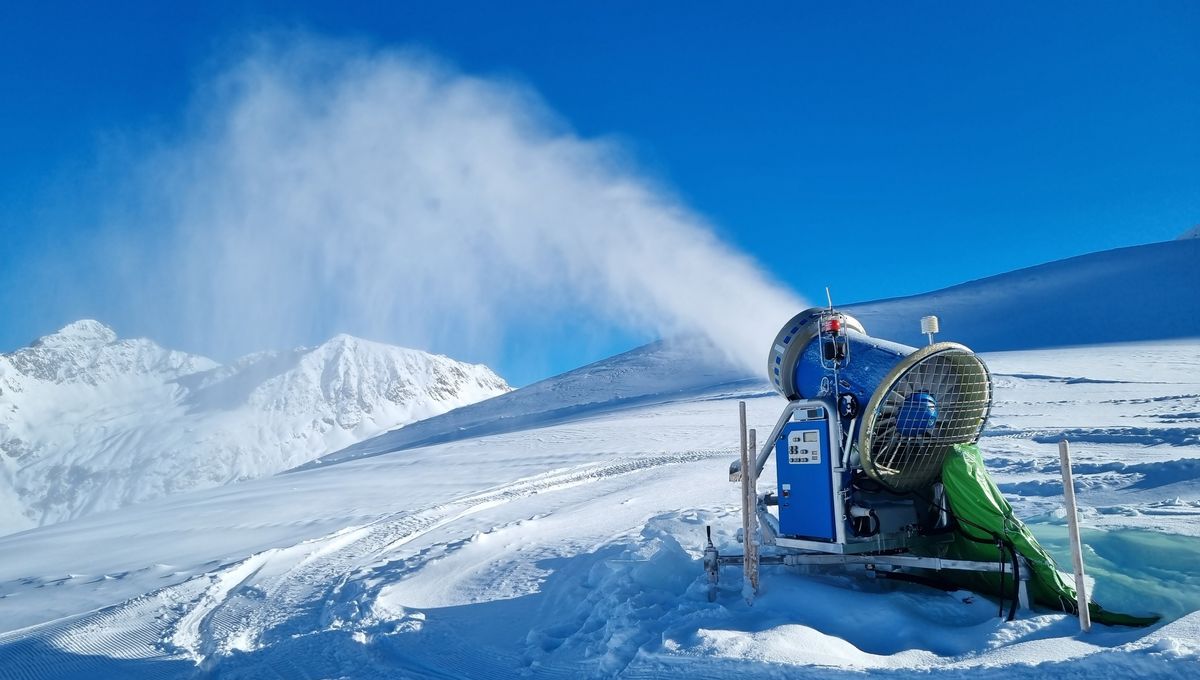
We could soon be living in an apres-ski world if global temperatures continue to soar, according to the findings of a study. After analyzing the expected future precipitation at more than 2,000 European ski resorts under different climate eventualities, the authors found that more than half will experience a severe lack of snow if temperatures rise 2°C (3.6°F) above pre-industrial levels.
Using “state-of-the-art reanalyses and climate projections of the snow cover reliability and a detailed inventory of ski resort locations in Europe,” the researchers found that 53 percent of Europe’s winter sports hotspots face a very high risk of low snowfall if this critical threshold is breached. A temperature increase of 4°C (7.2°F), meanwhile, would lead to a lack of snowfall at 98 percent of resorts.
Europe is currently the largest global winter sports tourism market, with around 60 percent of the world’s skiers slaloming down the continent’s slopes. During the 2019 season – the last before the COVID-19 pandemic disrupted international travel – this equated to 209 million visitors and more than 30 billion euros in revenues.
However, some of the region’s most popular destinations could soon have little to offer visitors in the winter. For instance, 89 percent of ski resorts in the Pyrenees – which straddle the border between France and Spain – face a very high risk of low snowfall at two degrees of warming.
In this case, “low snowfall” equates to the amount of snow experienced in the worst 20 percent of seasons between 1961 and 1990, while “very high risk” means that any given season has at least a 50 percent chance of experiencing these conditions. Assuming a 2°C (3.6°F) increase in global temperatures, the researchers calculate that 80 percent of resorts along the French-Swiss border will fall into this category, compared with just a third of those in the French Alps.
To mitigate the problem and keep the pistes open, the study authors suggest that resorts increase their production of artificial snow. This involves spraying water into the air so that it freezes before falling to the ground.
If artificial snow can be used to cover 50 percent of all skiing areas, then the researchers calculate that the percentage of European resorts facing severe snow shortages could be reduced to 27 percent. In the Alps and Pyrenees, this figure could be as low as seven and nine percent respectively.
However, at 4°C (7.2°F) of warming, the same quantity of artificial snow would be far less effective, leaving 71 percent of resorts at very high risk of low coverage.
The study is published in the journal Nature Climate Change.
[H/T The Conversation]
Source Link: Over Half Of European Ski Resorts Could Lack Snow If Global Temperatures Rise 2°C